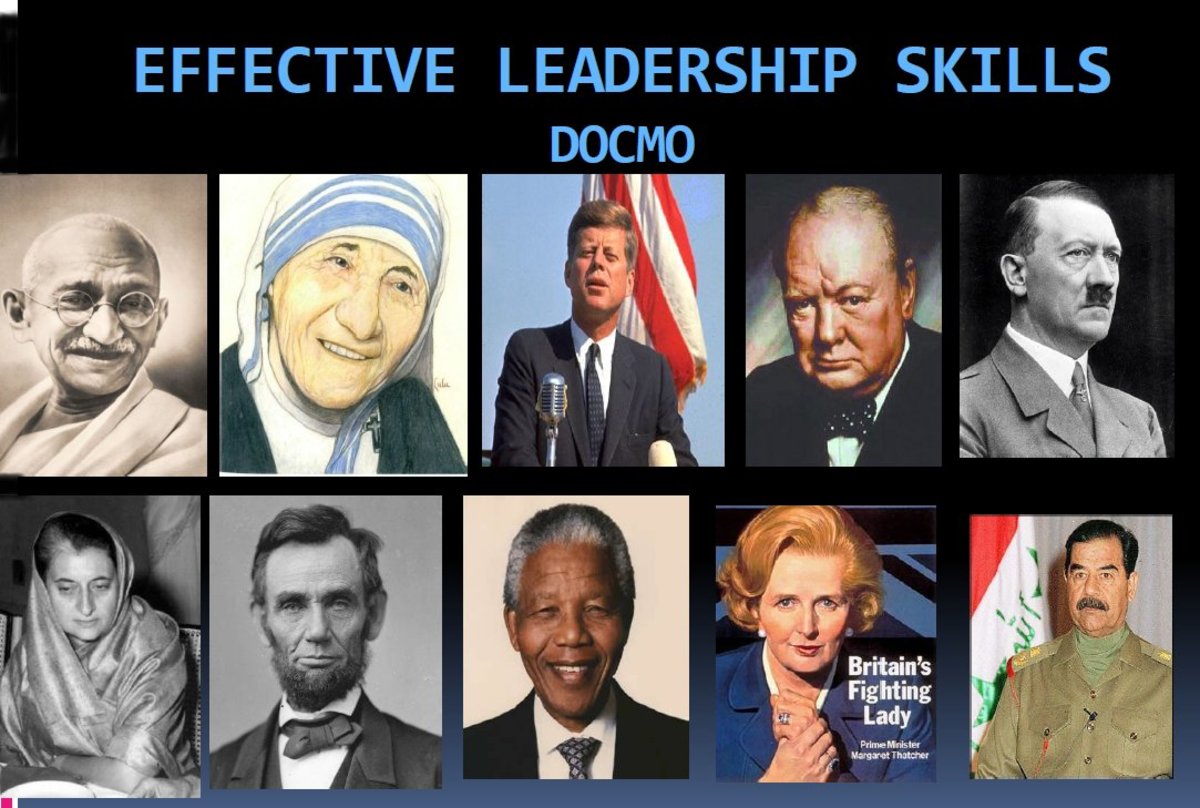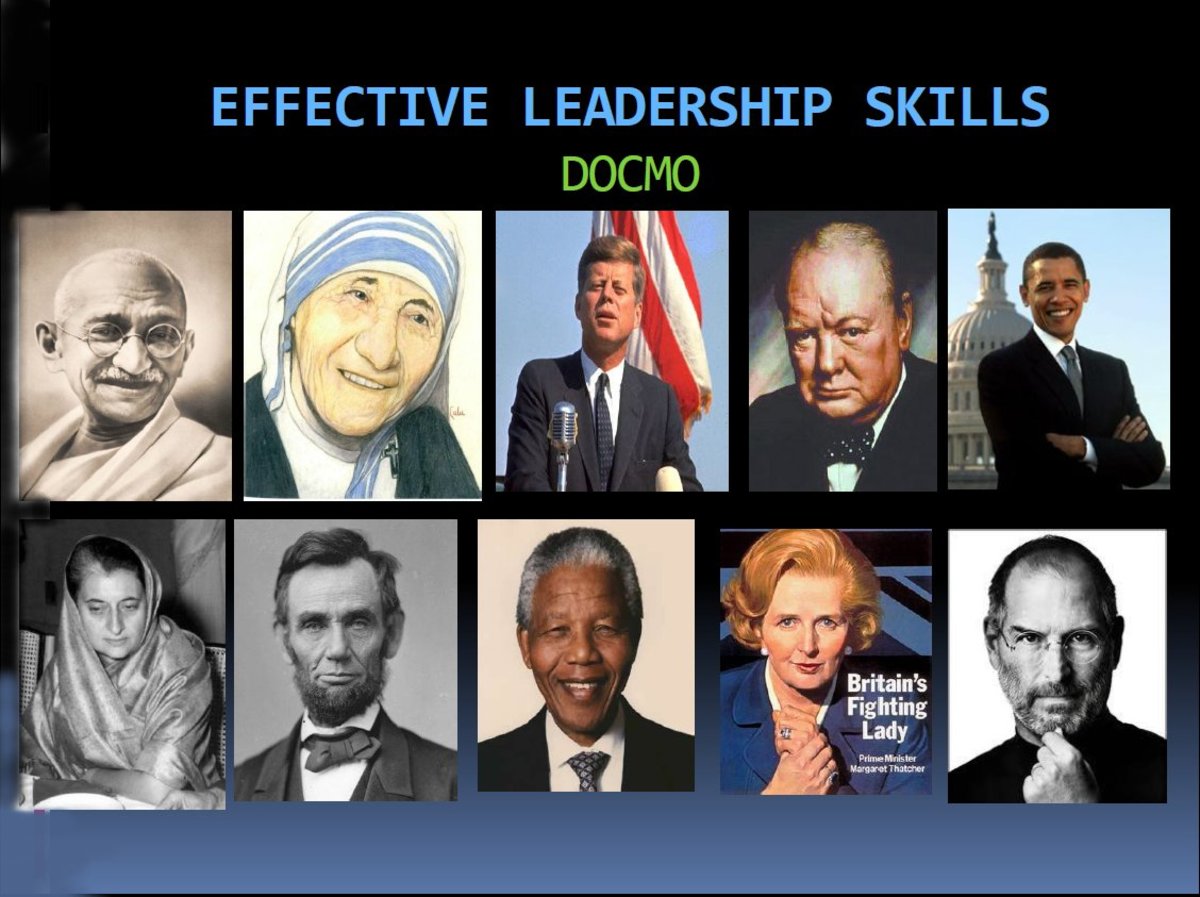Everyone Is A Leader

Full Speech on Leadership
A young adopted boy grew up in a poor area and went to a school where kids commonly bullied each other. This boy happened to be frequently bullied. One day after having enough of the bullying, he came home after school and asked his parents if they could move and the parents agreed. At the new school the boy developed an interest for computers. His interest continued to grow as he aged. After graduating high school, he moved on to college, but he dropped out 6 months later. This boy did not have an easy life. He was not born any more special than any other person. But this boy’s name was Steve Jobs. Steve Jobs led the technology industry for many years until recently passing away. He became a major leader in his time period, but he was not always like that. He started from the bottom and eventually became a great leader. Leaders show up everywhere and everyone exhibits leadership. Everyone shows leadership because leadership becomes learned over time, and because people show leadership in their own unique way.
Nobody is born a leader. Sure, some people may have specific traits that makes becoming a leader easier, but these traits do not decide whether they will become a leader. People can learn leadership skills in the same way they learn a school subject. Someone teaches people the basics, and they learn more through observation, experience and repetition. With this process, leadership and a school subject can become mastered. Leadership is not a personality trait, but a combination of them. People can work on each individual personality trait and become a leader. They do not need every single personality trait to be a leader because everyone exhibits leadership in their own way. People can have different combinations of personality traits and still show leadership. Warren Bennis from his book “On Becoming a Leader” stated “Learning to be a leader is not an easy task, just like learning to be a doctor isn’t easy. But it is actually easier than many of us think, because every person has the capacity for leadership.” He says leaders develop through their own hard work and many experiences. Some people may argue not everyone can become a leader because they do not have the right characteristics or they do not have the proper experience. Well what do experts consider the right characteristics? This question does not have a “one size fits all” answer because everyone has different characteristics. People show leadership everyday throughout the classroom, workforce, and home. People cannot avoid leadership. Just look around. They gain just as much experience from observing as they get from doing. Just about everyone here can give an example of sometime when they have taken a leadership role. And for those who do not think they have ever shown leadership, think harder because leadership potential resides in everyone. Think back to a time when someone gave a presentation, or led a class in discussion, or became the captain of a sports team, or performed as the first chair in band. Thankfully there happen to be so many opportunities to show leadership, because according to the Fall of 2011 edition of “Independent School Magazine” leadership has never mattered more. Many schools and jobs require people to demonstrate leadership, and lately this has become more and more common. Schools have started to develop student’s leadership skills from earlier ages now. The article also says that adults who have developed habits, and have had thousands of hours of repetition with some behaviors can break their habits and become leaders. This means that teaching leadership to children, who have more adaptability, less habits, and less repetition will become an easy task. They also say that any student can learn leadership with enough practice and the right environment. Emphasis needs to be placed on the word practice. Every single human can improve with practice. This includes skills and abilities, people can improve them. Many people commonly associate communication skills with leadership. Communication skills can improve with practice. The delivery of a speech has helped improve anybody’s communication skills, which also betters their leadership skills. The whole process of researching, writing, practicing, and giving a speech can help them move closer to their personal goal of becoming a better leader. When practicing and learning to be a leader, people cannot compare themselves to the famous leaders everyone hears about. To be honest, everyone cannot become leaders like them, but that does not mean people cannot become a leader. As soon as people realize leadership includes common human skills, learning leadership becomes like learning to read, or creating art, or learning a sport, or any of the other activities successfully taught in the schools. “Independent Schools Magazine” also stated that “The world is run in small groups.” This means that in every level of society, leaders make key decisions everywhere. Every decision has importance, and “Independent Schools Magazine” argues that the small leadership opportunities that not everyone sees have just as much importance, if not more importance than the well known decisions. One example stated that a student in school leading a small group discussion makes important contributions which compare to the decisions a student council president makes. This shows how the world truly works, in small groups. People do not only learn leadership in school though. Learning leadership through experience has proven to be an effective method. Someone may make a mistake and experience failure, or the complete opposite. They may succeed and learn what works for them. In an online article published by Apex Leadership LTD (Limited), a group of experienced educators, developers, and former business school department heads who help promote leadership, tell a true story about a young and inexperienced executive that made some bad decisions and cost the company several million dollars. Tom Watson Jr. the CEO of the company IBM summoned the young executive to his office. As the young executive entered Watson’s office he asked if Watson called him here to be fired. Watson replied “Not at all. Young man, we have just spent a couple million dollars educating you.” The young executive in the story made a bad decision as a leader, but now he has learned from his mistake and can improve himself and learn to be a better leader. Although this example tells a true story about a leader with a position of authority, people do not necessarily need a position of authority to be a leader.
Everyone can learn to be a leader, but how exactly can everybody show leadership in the real world around them. The answer varies with different people. Everyone shows leadership in their own way. Many people assume that only people with a position of authority can show leadership, but that is a misconception. People demonstrate leadership everyday without a job of authority. Leaders do not force people to do what they want, but use their influence for a worthwhile cause. A position can give authority but it cannot give leadership. An online article published by Psychology Today discusses many other misconceptions about leadership. The first misconception states that a person cannot become a leader if they do not take charge of a situation naturally. Many people believe birth predetermines leadership, but this proves to be false, because two types of leaders exist in the world. There are Situational Leaders and Habitual Leaders. Situational leaders make up the majority of the world’s population. Many do not even know they have leadership until they find the right situation that fits their passion and strengths. When given the right situation, they use their strengths to influence others and show leadership. Habitual leaders tend to be good at leading in just about every situation. These people have practiced so much that they have become comfortable leading in a variety of circumstances. The next misconception states that someone cannot lead if they tend to be shy. Sociologists have said that even the shyest of all people will influence at least 10,000 others in their entire lifetime. This means that even the shyest of people will lead 10,000 or more people in their entire lifetime. Some people will naturally talk well in front of large groups, but that does not limit leadership to only that skill. People can demonstrate leadership in a unique way by leading by example. Even the shyest people can do this. It is as easy as picking up trash in the dugout after a game. The next thing the baseball player knows the rest of his teammates joined along side of side of him helping. Cal Ripken Jr., the baseball player who played 2,632 games in a row, showed leadership by setting a good example. In March of 2009, “Success Magazine” published an article telling a story about a time when Derek Jeter, a young rookie at the time got to speak to Cal Ripken Jr. Jeter asked what the secret to playing so many games in a row, how does he do it? Ripken responded “You know Derek, I just…I just play. I didn’t just show up for work, as has sometimes been said. I also showed up to work.” This quote needs to be repeated one last time. “I did not just show up for work, I showed up to work.” Cal Ripken set an example for Derek Jeter and then Derek Jeter became one of the greatest players to ever play the game. Another misconception states that if everyone leads, then who follows. Everyone simply leads and follows simultaneously. Everyone leads from their area of strength, which means everyone influences others at the same time. Just think of it like a shopping mall. If everyone sells products then who buys them? Consider this answer, everyone sells and everyone buys. The people who sell sandwiches sell to the clothing store employees at lunch, and the clothing store employees sell to the restaurant employees when they need new clothes. People need to learn to lead with their strengths because when people think of leadership as using their strengths to influence others, then leadership becomes achievable for everyone.
Every person has the potential to be a leader, so whether they try to be a leader or not, at some point in their life they will show leadership. It is just waiting for the right time and situation to be released. Everyone in the world has the capability to be a leader. Every single person can do it, even the shyest of all people. Since nobody is born a leader, all it takes is a little bit of training and observing the world around them to help them show leadership in their own way. Who knows, they could become the next Steve Jobs, Warren Buffet, or any of the other great leaders everyone hears about.






